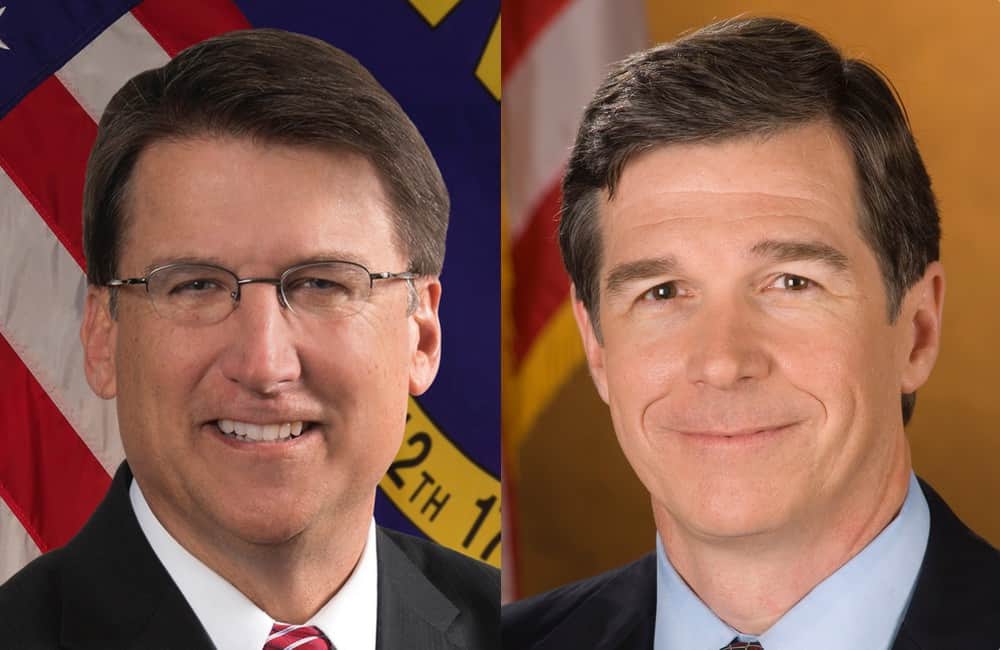

Now that North Carolina voters have chosen the Democratic and Republican nominees for governor and other statewide offices, a moment has arrived to reflect on first principles as citizens begin to think about their general election decisions. Specifically in the developing debate over education, it’s useful to turn to the North Carolina State Constitution to frame the issues.
“Religion, morality, and knowledge being necessary to good government and the happiness of mankind, schools, libraries, and the means of education shall forever be encouraged,” says the opening sentence of Article IX, which goes on to say, “The General Assembly shall provide by taxation and otherwise for a general and uniform system of free public schools, which shall be maintained at least nine months in every year, and wherein equal opportunities shall be provided for all students.”
In the week before the primaries, Attorney General Roy Cooper, who won the Democratic nomination for governor, issued a detailed paper on his approach to education policy. It is a paper worth examining because it fulfills a responsibility of candidacy: to give voters a sense of where you would lead them and a standard by which to hold you accountable.
Governor Pat McCrory, who won the Republican gubernatorial nomination, responded immediately to Cooper on education. Earlier, the Governor’s campaign website had enumerated education measures that contributed to a “record of success’’ upon which he bases his quest for re-election.
The Cooper paper envisions a sweeping reversal of the education policies pursued by McCrory and the Republican legislative majority. And while avoiding discussion of a tax increase, it plainly proposes a halt to further budget and tax cuts, especially tax reductions that favor corporations and wealthy individuals.
“It will take time to reverse years of cuts that have diminished our public schools and hurt middle class families,” says Cooper in his paper. “…Once considered a national leader on education, North Carolina has been moving in the wrong direction.”
Cooper intends to erect or strengthen institutional scaffolding of public education: expand preK beyond the current enrollment of 21 percent of four-year-olds, explore “social impact bonds’’ as a means of providing services to poor mothers and children, as well as restore and enhance Teaching Fellows, the Teacher Cadet program, and Regional Leadership Academies for school administrators. Cooper would restore a child-care tax credit, and he would have every newborn receive a library card to encourage parents to read to their youngsters. He would give principals more flexibility to innovate, and he calls for background checks for educators.
There are issues on which Cooper and McCrory generally agree, including the “over-testing’’ of students, extending digital technology into classrooms, and a pay raise for teachers. McCrory’s website says that North Carolina increased average teacher pay “more than any other state” in 2014. And it says his priority is “giving teachers a much deserved raise.” He doesn’t say by how much.
Cooper’s paper also does not propose a specific pay-raise percentage, though the Democratic candidate defines teacher pay in more expansive terms. Cooper says he will “strive to raise teacher pay to at least the national average,” and he adds, “If we can find the money to support tax give-aways for big corporations, we can find money to raise teacher salaries.”
On his campaign website, the Governor takes credit for signing legislation that looks toward replacing Common Core standards. The Cooper paper does not mention Common Core.
The Governor also notes his support for tuition vouchers for children of low-income families to attend private schools. Cooper says explicitly, “I do not believe public dollars should go to private schools.”
The Governor’s education list does not mention charter schools. Cooper says that charter schools “have a role in our education system” and that “we must ensure they are held to the same accountability and transparency standards that we hold traditional public schools.”
In his quick retort to Cooper’s education paper, McCrory focused on the Democrat’s suggestion of “tuition-free community college.” In his paper, Cooper said he would design a program along the model of other states that had bundled federal Pell Grants and existing financial aid with a state-funded “last dollar’’ scholarship program to cover tuition and fees for community college students as a means toward addressing the skills gap in the economy.
On his campaign website, McCrory linked Cooper to former Governor Bev Perdue in calling for tuition-free community college without saying how it would be paid for. In a speech to the Wake County Republican Convention, the Governor warned against “false promises’’ from Democrats. “Anyone who offers you something for free,” said McCrory, “turn around and walk away.”
Community colleges operate under statutory law, which gives the State Board of Community Colleges authority to “fix and regulate all tuition and fees charged to students.” The McCrory-Cooper differences over community college tuition give voters insight into their priorities in the context of North Carolina’s continuing challenge to prepare more of its people for higher-skill, higher-wage work.
The community college section consists of one paragraph in a 15-page paper, the bulk of which Cooper devotes to public education. By going beyond merely criticizing the incumbent as challengers do and issuing his education paper, Cooper has joined McCrory in a debate over issues rooted in first principles:
What does it mean and entail in the 21st Century to sustain a “uniform system of free public schools” with “equal opportunities’’ for all students?
Here’s a link to education section of state constitution.
Here’s a link to Cooper’s paper.
Here’s a link to McCrory’s website on education.


